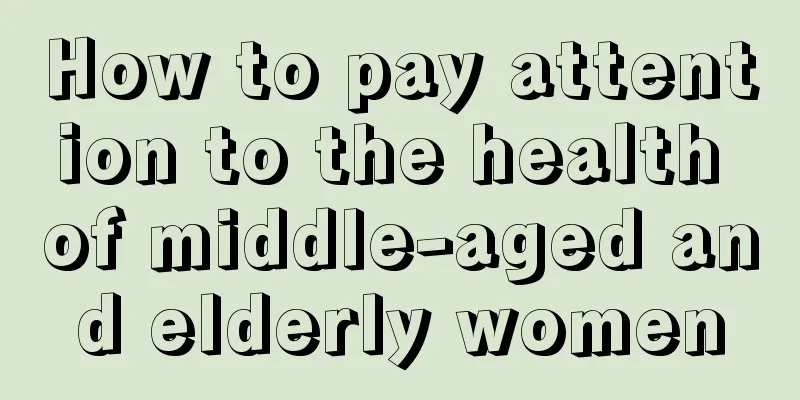Pain on both sides of the chest

|
After having sexual intercourse, women are more likely to develop gynecological diseases, which may lead to a series of breast lesions. Pain occurs on both sides of the chest. You should consider the possibility of breast hyperplasia or breast lumps. Lumps can appear in women of all ages and can vary in number and size. The lump may also change as your body cycles. Let’s find out through the following article. What to do if you have pain on both sides of your breasts? Revealing the real "culprit" of breast pain and tingling What should I do if I have pain on both sides of my breasts? Breast pain can be divided into cyclical and non-cyclical, and can also change from cyclical to non-cyclical. 2/3 of breast pain is cyclical. The vast majority of patients are premenopausal women. The most common site of pain is above the outer side of the breast, and symptoms worsen before menstruation. The pain is characterized by distension, tingling, heaviness and tenderness. 1. Cyclic breast pain: It is related to the menstrual cycle and reflects the cyclical changes in hormones in the body. This pain is normal to a large extent and mainly occurs in premenopausal women, especially before the age of 35. This condition is generally cyclical pain caused by breast hyperplasia. 2. Non-cyclical breast pain: Compared with cyclical breast pain, non-cyclical breast pain is more worthy of attention. But most non-cyclical breast pain is also benign. Its characteristics include intermittent onset, variable pain intensity, mostly unilateral occurrence, and sharp nature. Patients need to pay attention to this situation. The real culprit of breast pain and tingling is breast hyperplasia
Most breast pain and tingling are caused by breast diseases. Experts remind people to be alert to breast hyperplasia when breast pain occurs. The main symptoms of breast hyperplasia are breast pain and breast lumps: (1) Breast pain : It is often characterized by distending pain or stabbing pain, which may affect one or both breasts, with one breast being more severe. In severe cases, the breast cannot be touched, and may even affect daily life and work. The pain is mainly in the breast lump, and may also radiate to the affected armpit, chest, flank, shoulder and back; some people experience nipple pain or itching. Breast pain often occurs or worsens a few days before menstruation and is significantly relieved or disappears after menstruation. The pain may also fluctuate with mood changes. This pain related to the menstrual cycle and emotional changes is the main feature of the clinical manifestations of hyperplasia of the breast. (2) Breast lumps : Breast lumps can occur in one or both breasts, in one or more lumps, and are more common in the upper outer quadrant of the breast, but can also occur in other quadrants. The shapes of the lumps include flake-shaped, nodular-shaped, cord-shaped, granular-shaped, etc., among which the flake-shaped is the most common. The lump has unclear boundaries, is of medium or slightly hard texture, has good mobility, has no adhesion to surrounding tissues, and is often tender. The lumps vary in size, with small ones being as big as millet grains and large ones exceeding 3 to 4 cm. Breast lumps also change with the menstrual cycle. The lumps become larger and harder before menstruation, and shrink and soften after menstruation. |
<<: Does ectopic pregnancy cause abdominal pain?
>>: Is backache and abdominal pain due to pregnancy?
Recommend
Is cheese on a stick nutritious? What does cheese taste like?
Cheese is a fermented milk product that is rich i...
Caesarean section with hard lump in the abdomen
It is very common to see nodules on the wound aft...
What diseases does the nine-valent HPV vaccine prevent?
The HPV family is very large, with more than 100 ...
How many days can ultrasound detect pregnancy?
B-ultrasound is a test that is often done during ...
What causes female endocrine disorders?
"Endocrine imbalance", a very strange &...
Can't you spray water on Anthurium? How to water Anthurium appropriately?
Anthurium is a highly ornamental flower. Because ...
What to do if milk keeps leaking during breastfeeding
After a mother gives birth, the milk secreted fro...
How to solve the problem of small menstrual flow
There are many women whose cycle duration and num...
Can I use geranium essential oil during my period?
Essential oils are commonly used by women. They p...
Can I still have a baby if I take cold medicine during my ovulation period?
For those who want to have children, having sex d...
Children’s urine routine test: Does positive urine sugar mean diabetes?
Author: Song Wenqi, National Children's Medic...
How to relieve vomiting during pregnancy
Pregnancy is a very happy and joyful thing, but m...
Can I practice yoga after a caesarean section?
Many female friends pay much attention to their b...
Bread and pastries are prohibited from adding it! Why are 5 of the food categories that can add dehydroacetic acid preservatives kept and 7 returned?
According to the "National Food Safety Stand...
Smoking after abortion
For women, if they have an abortion, they need to...









![[Medical Q&A] If I have myasthenia gravis and I am worried about the side effects of hormones, should I not use hormones?](/upload/images/67f0f324df9a4.webp)